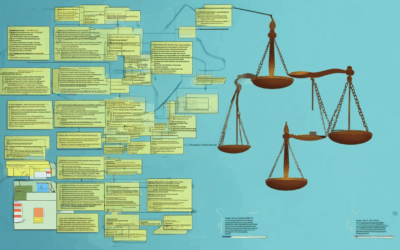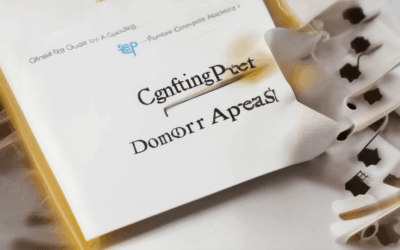Seeking financial support for your project, business, or education? Applying for grants can be a crucial step toward achieving your goals, whether you’re based in Minnesota or Pennsylvania. With a wide range of opportunities available, understanding how to apply for grants effectively is essential for maximizing your chances of success. This comprehensive guide will walk you through the process, helping you navigate the complexities of grant applications, eligibility criteria, and resources available specifically for residents of these two states. Whether you’re looking for funding for a small business, housing, education, or community initiatives, this guide offers valuable insights and strategies to help you secure the financial assistance you need. By addressing key questions and providing actionable tips, we aim to empower you with the knowledge needed to excel in your grant application journey.

How to Ask for Grant Money
To effectively ask for grant money, follow these organized steps:
- Research Available Grants: Identify grants that match your organization’s mission and objectives. Utilize resources like the Foundation Center and GuideStar to discover relevant opportunities.
- Prepare a Strong Proposal: Create a detailed proposal outlining your organization’s mission, past achievements, and how the grant will specifically benefit your cause. Include financial statements and clearly define the funding request amount.
- Align with Grantor Priorities: Study the grantor’s mission and past grantees to tailor your proposal to their interests and goals.
- Write a Compelling Narrative: Craft a story that highlights your organization’s impact and how the grant will drive meaningful change. Clearly articulate your goals and the expected community impact.
- Review and Edit: Have your proposal reviewed by colleagues or experts. Ensure clarity, accuracy, and professionalism in the document.
- Network and Seek Advice: Connect with individuals who have successfully secured grants from the same organization to gain valuable insights and tips.
- Submit on Time and in Correct Format: Ensure all applications are submitted promptly and adhere to the specified guidelines to avoid disqualification.
- Follow Up Post-Submission: Monitor the status of your application and reach out to the grantor if there are delays or updates needed.
- Diversify Funding Sources: Explore various funding avenues, including crowdfunding and corporate sponsorships, to reduce dependency on grants.
- Acknowledge the Funder: If successful, publicly thank the grantor and communicate how the funds are being utilized to enhance your programs.
Eligibility for Minnesota Grants
To determine eligibility for Minnesota grants, consider the following:
- Minnesota State Grant: Available to undergraduate students enrolled full-time (at least 15 credits per term). Part-time students may qualify with prorated awards.
- Minnesota Student Aid Programs: Includes various grants targeting students from low-income households, with specific criteria based on financial need and academic background.
- Need-Based Grants: These are often awarded to students demonstrating financial hardship, with income limitations typically applying to eligibility.
- Residency Requirement: Generally, applicants must be Minnesota residents to qualify for state grants, though exceptions may exist for certain programs.
- Eligibility for Vocational Training: Grants may be available for students enrolled in trade schools or two-year colleges pursuing technical or career-oriented education.
- Combining Grants: Students may be eligible for multiple grants simultaneously, allowing for comprehensive coverage of educational expenses.
- Application Process: Each grant may have unique application requirements, often requiring submission of financial information and proof of enrollment.
For detailed information and application guidelines, visit the official Minnesota Student Aid website: Minnesota Student Aid .

Are Grants Hard to Apply For?
Applying for grants can indeed feel overwhelming, but understanding the process and preparation involved can make it more manageable. Below are common challenges and tips to streamline your application journey.
Why Are Grants Hard to Apply For?
-
Complex Requirements
Many grants require detailed proposals, financial plans, and progress reports. Missing specific guidelines can disqualify your application.
-
Competitive Applications
Grants often attract numerous applicants, making competition fierce. Standing out requires clear objectives and innovative ideas.
-
Eligibility Criteria
Ensure your organization meets all criteria before applying. Failure to do so can lead to rejection.
-
Time-Consuming Process
Preparation takes significant time and effort, which can be daunting for busy non-profits.
How to Make Grant Applications Easier
-
Research Thoroughly
Identify suitable grants aligned with your mission and goals. Use tools like NPO Expert’s grant finder to streamline your search.
-
Understand Guidelines
Carefully review each grant’s requirements. Missing deadlines or not meeting specifications can derail your efforts.
-
Seek Guidance
Consult with experts or mentors who have successfully secured grants. Connect with our network for personalized advice.
-
Start Early
Begin your application well ahead of deadlines to allow time for revisions and feedback.
By addressing these challenges and implementing these strategies, you can enhance your chances of securing the funding your organization needs. Remember, persistence and thorough preparation are key to navigating the grant application process effectively.

Who is Eligible for the PA State Grant?
To determine eligibility for the PA State grant, consider the following:
- Education:** If the grant is for educational purposes, individuals enrolled in degree programs or vocational training may qualify.
- Small Businesses:** Grants often target small business owners seeking funding for expansion, innovation, or operational costs.
- Nonprofits:** Organizations with a mission aligned with the grant’s objectives may apply, typically requiring tax-exempt status.
- Community Projects:** Residents involved in local initiatives or projects aimed at community development may be eligible.
- Arts and Culture:** Artists, cultural organizations, and creative projects could be targeted, depending on the grant’s focus area.
Eligibility criteria vary by grant type and issuer. Always verify with the official source or application portal for the most accurate and up-to-date information.
For application steps:
- Visit the official PA State grant website.
- Review and understand the specific eligibility requirements.
- Prepare required documentation (e.g., proof of residency, business registration).
- Submit a completed application before the deadline.
Do you have to pay back PA grants?
No, you do not have to pay back Pennsylvania State Grants. These grants are considered “gift aid,” meaning they are non-repayable and do not require any form of repayment. The Pennsylvania Higher Education Assistance Agency (PHEAA) administers these grants for eligible undergraduate students who demonstrate financial need.
The Pennsylvania State Grant program covers a portion or full tuition and fees for qualified applicants. Unlike loans, grants do not need to be repaid, making them a valuable resource for students managing their educational expenses.
For more information about Pennsylvania State Grants and other financial aid options, visit the official PHEAA website: PHEAA .

Paa Grant
Paa Grant was a prominent political activist and a key figure in the history of Ghana. He is widely recognized for his role in the nation’s independence movement and his contributions to the establishment of the United Gold Coast Convention (UGCC), which he founded in August 1947. As the first president of UGCC, Grant played a pivotal role in shaping Ghana’s political landscape during its transition to independence.
- Political Activism: Paa Grant was actively involved in the struggle for Ghana’s independence. His financial support enabled Kwame Nkrumah, a prominent Pan-Africanist and Ghana’s future president, to return to Ghana from the United States, thereby contributing significantly to the country’s liberation efforts.
- Founding Father Status: Alongside other notable figures, Paa Grant is considered one of Ghana’s Founding Fathers due to his instrumental role in the nation’s independence movement.
- Leadership Role: As the founder and first president of UGCC, Grant demonstrated strong leadership and vision, which greatly influenced Ghana’s path toward self-governance.
In conclusion, Paa Grant’s contributions as a political activist and his leadership in organizations like UGCC underscore his importance to Ghana’s historical trajectory. His efforts alongside figures like Kwame Nkrumah highlight his dedication to the nation’s liberation and development.





0 Comments